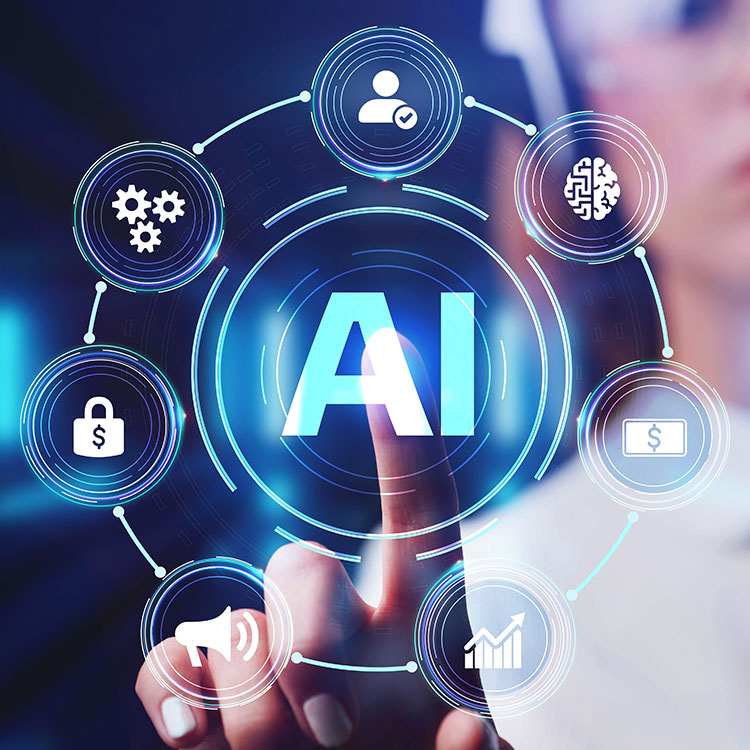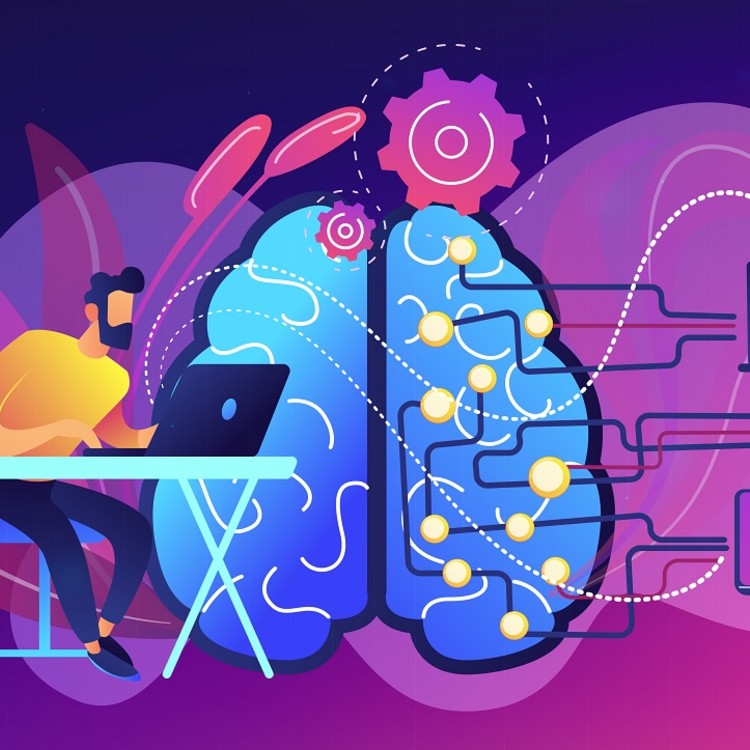When the going gets tough for businesses, the emboldened are turning to artificial intelligence (AI) and machine learning (ML) to move ahead. As more businesses rely on these technologies to operate, industry experts expect AI will add trillions of dollars to the global economy by the next decade.
“Companies that fail to adopt this technology and leverage it to the fullest extent possible are certain to fall behind and eventually become irrelevant,” said Martin Ford, author of Rule of the Robots: How AI Will Transform Everything.
“By contrast, companies who act immediately and begin to develop an AI strategy [have the chance to create] competitive advantage. Recent analyses from McKinsey and PwC estimate that AI will add as much as $13 trillion to the global economy by 2030. This likely explains why there are massive investments pouring into AI… both internally among corporations and in the VC space.”
The world’s most valuable resource is now data, not oil, according to The Economist. To manage the growing amounts of data, businesses are turning to AI and ML technologies as indispensable business tools to stay competitive. Forrester research goes as far as to say that AL and ML are foundational for any modern enterprise. This is creating a rapid shift in the IT skills, mindset and investments.
AI is being use in a growing number of ways, such as enhancing products, improving forecast and prediction capabilities, automating contracts, removing inefficiencies in customer services and other operations, according to McKinsey. Chatbots and other automated tools help with cybersecurity, regulatory compliance and risk management needs. Nearly two-thirds of the 1,843 respondents to the consulting firm’s worldwide survey said their companies plan to increase spending on AI through 2024.
“Going forward, AI and ML solutions are expected to radically transform nearly every industry and field [in the commercial marketplace],” noted Ford.
Enterprise AI Adoption is Scaling Rapidly
Already 80% of executives believe that automation can be applied to any business decision, according to a recent survey by Info-Tech Research Group. Findings showed that AI and ML tools have become the most popular area where business IT departments will invest in 2023.
Harnessing the business benefits of these technologies requires new strategies for integrating and managing AI and ML solutions across the enterprise, noted Taylor Tresatti, head of industry research for BIZDEV: The International Association for Business Development.
“Not only do we see more and more organizations looking to leverage off-the-shelf, ready-to-go artificial intelligence and machine learning services on an as-needed basis these days,” Tresatti said.
“We’re also seeing more businesses looking for ways to quickly tack deep learning capabilities onto preexisting apps, tools and systems in hopes of deriving more value from their existing operations. This can put a growing strain on time-strapped IT departments, who are increasingly on the hunt for solutions that can help them rapidly and cost-efficiently deploy software that allows them to derive more insight from their data.”
Roughly nine in 10 CEOs now report that AI has become a mainstay in their offices, allowing them to increase business productivity, improve decision-making, and enhance customer experiences, according to PwC.
As IT teams are challenged to drive added business performance and efficiency using AI and ML solutions, many embrace automation and new tools to garner actionable business intelligence and effectively manage apps and data. PwC’s 2022 AI
Business Survey showed that focusing on one goal and then moving to the next was a recipe for success. Instead, companies that successfully implement AI focus on three areas at once: business transformation, enhanced decision-making and modernized systems and processes.
Business Use of AI Matures Across Hybrid Cloud
It’s still early days and many enterprises have yet to explore uses for these technologies. But according to McKinsey’s The State of AI in 2022 — And a Half Decade in Review, adoption has more than doubled since 2017, although the proportion of organizations using AI has plateaued between 50 and 60 percent for the past few years.
“A set of companies seeing the highest financial returns from AI continue to pull ahead of competitors,” the McKinsey report states.
A June 2022 report by Accenture claimed that only 12% of companies currently using AI are doing so at a maturity level that’s capable of delivering a strong competitive advantage. That means the vast majority are barely scratching the surface of what’s possible. Some use custom-developed internal AI- and ML-powered tools while others turn to externally-developed solutions.
Ford predicts that AI-powered capabilities will take the form of an everyday utility that companies of all sizes can tap into as needed, almost like they do for water, heating, cooling, and electricity.
“Deep learning tools will become a resource that can quickly and cost-efficiently be used to solve any challenge,” Ford said.
“Going forward, their importance to companies in every sector will grow, as they’re increasingly used to cull through huge mountains of data to arrive at vital insights and actionable strategies.”
These technologies are commonly offered by cloud computing service providers, which are racing to create scalable and future-proof AI and ML solutions to meet different industry needs. IT teams will continue to develop custom AI capabilities, but they will need to make sure they work with other AI services across owned and rented data centers. Open source enterprise software provider Red Hat reports that 78% of enterprise AI and ML ventures are deployed on hybrid cloud infrastructures.
“Certainly, we see companies in every space continuing to experiment with building their own artificial intelligence apps and routines,” said Tresatti.
“But at the same time, given the accelerating pace of change and digital transformation, and enterprises’ growing need for agility, the outsourcing of AI and deep learning needs is becoming more common.”
Working with service providers who specialize in these areas only makes good sense for many enterprises, Tresatti said.
“Not only does doing so allow firms to get up to speed with and integrate AI and ML offerings into their apps and systems more rapidly, and offload tasks that would otherwise pile on already busy IT departments,” he said. “It also provides companies with the flexibility that they need for these tools and solutions to scale, evolve, and change over time.”
AI Business Uses Evolving
With CompTIA reporting that 91.5% of leading businesses are now investing in AI on an ongoing basis, the shape of these service partnerships is also quickly transforming as well. The growing use of AI is also pressuring businesses to hire in-house software and data engineers, AI scientists and ML pros and explore outside services.
Enterprises use AI technologies to assist with process automation, data analysis, customer service enhancement, productivity and personalization. Going forward, experts expect the focus will shift towards forecasting market conditions, enhancing supply chain operations, developing new products, targeting new customer segments, hiring and training employees, and making more long-term strategic decisions.
AI will power more self-service tools designed to help professionals quickly gain deeper insights, perform everyday tasks faster and increase worker productivity. These are just some of the big benefits AI will bring to businesses, according to industry experts, who are discovering more capabilities and possibilities nearly every day.







